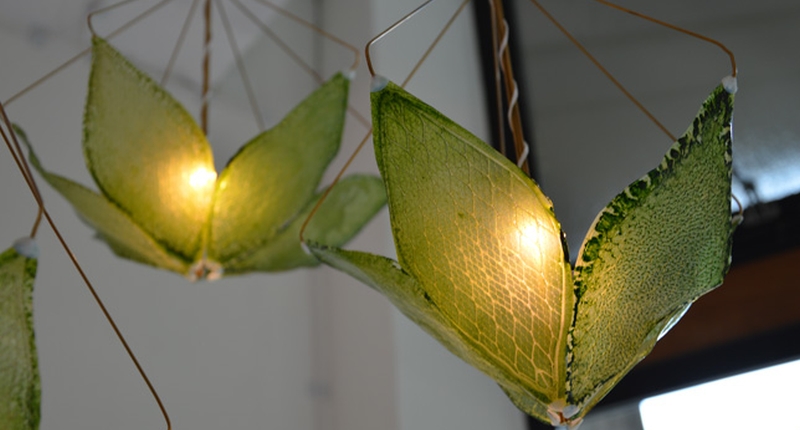Plants are those useful green things humans cultivate from seed for food, or chop down to provide materials like paper. Most importantly, we also need the oxygen they provide to survive. A new development led by an RCA graduate student has blossomed the first oxygen-producing “man-made biological” leaf, which could be used for future space travel or to fight climate change.
No ad to show here.
The “synthetic biological” leaf created by Julian Melchiorri may be a glaring oxymoron, but is perhaps the only way to explain his creation adequately. It functions wholly like a naturally-grown leaf, producing oxygen through photosynthesis and looks pretty hanging from a ceiling. It’s effectively a portable carbon dioxide converter, sans root system and terracotta pot.
The leaf itself is actually a matrix of silk threads soaked in cholroplasts (the photosynthesis units of the leaf) extracted from a natural leaf. The protein-rich silk provides a sustainable, stable environment for the chloroplats who are quite happy living in something as arbitrary as a lampshade. Melchiorri explains:
“My idea was to use the efficiency of nature in a man-made environment. I created some lighting out of this material, using the light to illuminate the house but at the same time to create oxygen for us.”
This opens up massive possilibities for endeavours like space travel and the carbon emissions crisis. NASA is also researching technologies that would make long distance space travel a possibility.
The synthetic leaves can also cover buildings (filtering external air), be hung inside buildings (filtering internal air) and cover ventilation shafts, essentially providing oxygen to every corner of the earth where plants couldn’t necessarily grow otherwise.
Previous advancements in 3D printing have allowed humans to print food, makeup and even clothing, but this is an entirely new sphere, opening new frontiers — quite literally. How does a life on Mars surrounded by biologically-enhanced synthetic leaves sound?
Images: Dezeen/Julian Melchiorri
